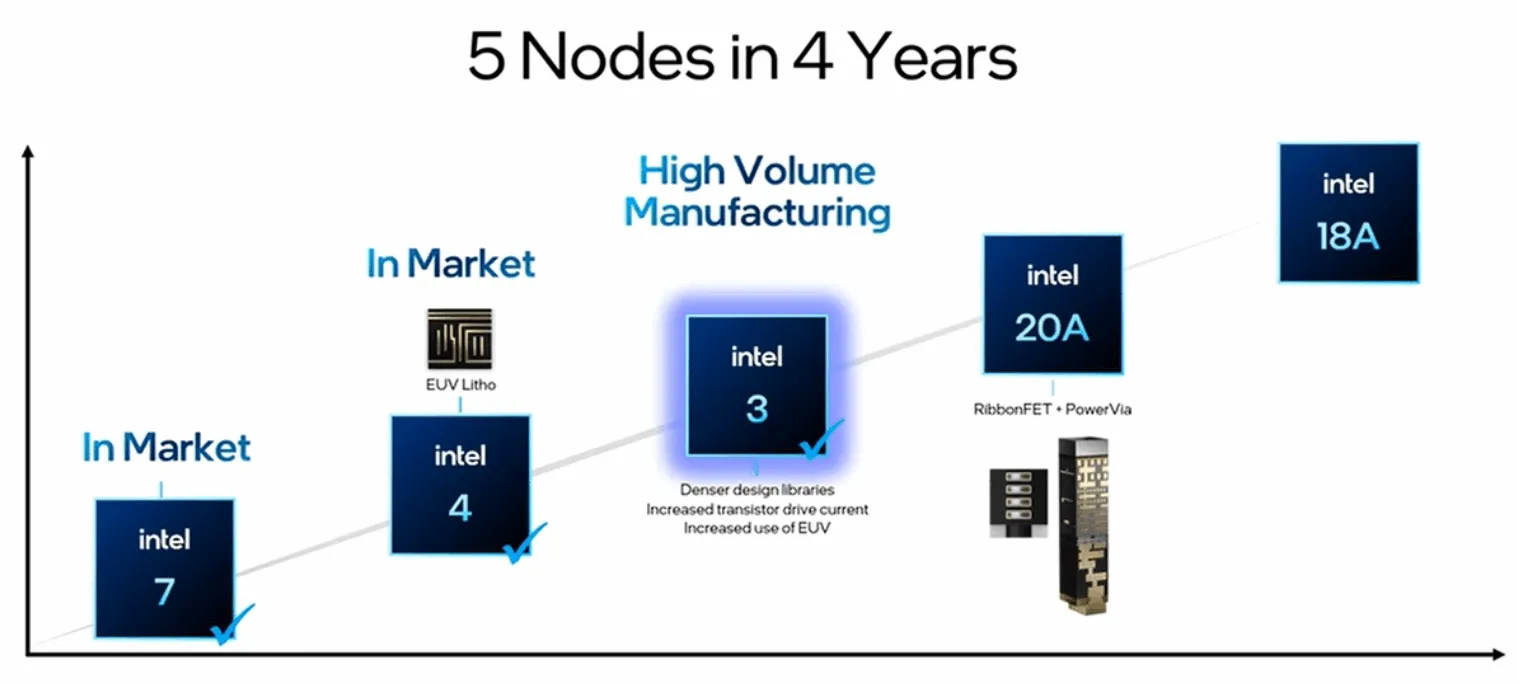
-advertisement-
Intel has commenced mass production of chips using its new Intel 3 process, an important development announced at the annual VLSI Symposium. This process, an improvement over the Intel 4 node, is designed for both Intel and its external customers. Production has started at Intel's facilities in Oregon and Ireland, meeting the planned readiness by the end of 2023. The Intel 3 process is currently used to manufacture the latest Xeon 6 CPUs, mainly intended for data centers.

Intel 3, an enhanced version of the Intel 4 node, was the company's first application of ASML's Extreme Ultraviolet (EUV) lithography technology. The new 3nm node offers up to 18% improved performance at the same power consumption level as its predecessor, with a transistor density up to 10% greater. The advancements include two different libraries of transistor groups: a high-performance 240nm library and a higher-density 210nm library, providing chipmakers with design flexibility. Customers can also choose from three metal stacks: a cost-effective 14-layer stack, a 21-layer stack for enhanced performance, and an intermediate 18-layer stack.
Intel 3 will be the company's last process using fin-based field-effect transistors (finFETs). The upcoming 20A node, expected later this year, will transition to gate-all-around (GAA) transistors, which offer better control over electrical flow and reduce issues like leakage currents. While Intel plans this shift, other companies like TSMC are moving towards GAA technology next year, and Samsung has already implemented it in its 3nm process, albeit with low production yields.
Intel 3 not only signifies a technological leap but also represents a strategic shift for Intel, as it is the first advanced node being offered to external customers. This move aligns with Intel's IDM 2.0 strategy, announced over three years ago, aiming to expand its role in the semiconductor industry by manufacturing chips for other companies. Future improvements and variants of Intel 3, with additional features and enhanced performance, are expected. Intel also plans to introduce an 18A process featuring GAA technology for external customers.
Editor:Lulu
▼▼▼
Onsemi to invest up to $2 billion in Czech semiconductor plant
Taiwan's GlobalWafers receives NT$3.5 billion subsidy for Italian fab
German chipmaker Infineon to set up R&D center in Taiwan
The South Korean AI chip companies Rebellions and Sapeon Korea have merged
Staying in the Netherlands! ASML headquarters' expansion plan approved
Japan chipmaker Kioxia ends production cuts, secures bank lending
+86 191 9627 2716
+86 181 7379 0595
8:30 a.m. to 5:30 p.m., Monday to Friday
